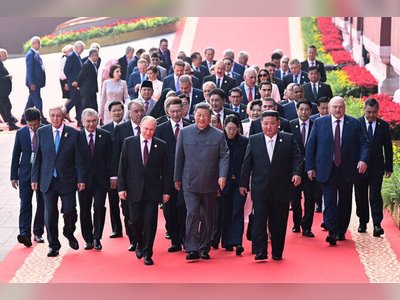
Saudi Families Preserve 'Sabi' Tradition with Modern Touch
The seventh-day celebration of newborns combines cultural heritage with contemporary practices.
In Saudi Arabia, the tradition of "sabi," which marks the arrival of a newborn seven days after birth, continues to be an essential part of the culture.
This custom involves prayers for the child's health, sharing food among family and neighbors, and introducing the baby to the wider community.
The ritual is closely tied to the Islamic practice of "aqiqah," where two sheep are sacrificed for a boy and one for a girl, reflecting gratitude towards God and strengthening social bonds.
Modern elements have been integrated into this ancient tradition, with some families using technology during celebrations and others opting for traditional singing groups to entertain guests.
The sabi has also evolved economically, with shops offering themed gifts and decor related to the event.
Despite these changes, the core purpose of the sabi — celebrating life's blessings and fostering family unity — remains unchanged.
This custom involves prayers for the child's health, sharing food among family and neighbors, and introducing the baby to the wider community.
The ritual is closely tied to the Islamic practice of "aqiqah," where two sheep are sacrificed for a boy and one for a girl, reflecting gratitude towards God and strengthening social bonds.
Modern elements have been integrated into this ancient tradition, with some families using technology during celebrations and others opting for traditional singing groups to entertain guests.
The sabi has also evolved economically, with shops offering themed gifts and decor related to the event.
Despite these changes, the core purpose of the sabi — celebrating life's blessings and fostering family unity — remains unchanged.










